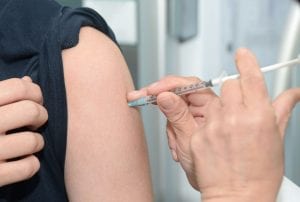Judge denies a motion to dismiss a case against three major drug companies over allegations of price gauging and making it too expensive for diabetics to obtain life-saving insulin.
Three well-known insulin makers, including Novo Nordisk A/S, Eli Lilly & Co., and Sanofi, are facing allegations that they overcharged diabetic patients for their life-saving medication. U.S. District Judge Brian Martinotti in New Jersey, appointed by former U.S. president Barack Obama, allowed a proposed class action lawsuit filed by 67 diabetics over price to proceed on consumer fraud allegations. He their dismissed racketeering claims.
An ever-increasing number of cases targeting insulin manufacturers’ price hikes have been filed in Martinotti’s court with plaintiffs claiming the companies are illegally raising prices to provide rebates for pharmacy benefit managers.
Regarding the plaintiffs’ state claims, Judge Martinotti’s opinion read, “This Court finds Plaintiffs have adequately alleged fraudulent, unfair, or unconscionable conduct.” The court also found the plaintiffs “adequately pled an ascertainable loss.”

“This ruling blows the insulin racket wide open,’’ said Steve Berman, a plaintiffs’ attorney on the case. He added that the judge’s ruling “clears the way for us to begin obtaining discovery from the manufacturers and PBMs so we can shine the light on exactly what has driven insulin prices sky-high.”
“We’re pleased with the court’s dismissal of the RICO claims and numerous state law claims and will continue to defend the company against any remaining claims,” Ken Inchausti, a U.S.-based spokesperson for Bagsvaerd, Denmark-based Novo Nordisk A/S said.
Ashleigh Koss, a spokesperson for Sanofi, said while the allegations are meritless. Gregory Kueterman, a Lilly spokesperson, added “the company would continue to defend itself from the insulin allegations.”
The suit accuses the companies of raising insulin prices by more than 150 percent over five years, threatening the health and well-being of diabetics who need this medication daily. The complaint states that some patients now pay nearly $900 dollars per month just to obtain their drugs. Others intentionally “failed to take proper amounts of insulin to wind up in emergency rooms, where they could get free samples of the drug,” according to court documents. And, many patients have foregone using unexpired insulin for unsafe, expired doses.
Diabetic patients contend “insulin manufacturers’ sticker prices are different from the prices insurers pay after discounts are awarded to pharmacy-benefit managers.” The complaint states that a well-hidden, quid pro quo arrangement between drug makers and pharmacy benefit managers (PBMs) “increased benchmark prices are the result of a scheme and enterprise among each defendant and several bulk drug distributors. In this scheme, the defendant drug companies set two different prices for their insulin treatments: a publicly-reported, benchmark price and a lower, real price that they offer to certain bulk drug distributors.”
They’ve added that “the rebates amount to kickbacks for benefit managers, who recommend which drugs should be covered by insurers. Higher list prices mean larger-percentage rebates out of which PBMs take a portion,” according to the filing.
While Martinotti agreed with the companies’ arguments that patients couldn’t make a proper racketeering claim, he gave plaintiffs a chance to amend their lawsuit to address defects in the claim.
The case is Chaires v. Novo Nordisk Inc., 17-cv-699, U.S. District Court, District of New Jersey (Trenton).
Sources:
Novo Nordisk, Lilly, Sanofi Must Face Insulin Drug Pricing Suit

Join the conversation!